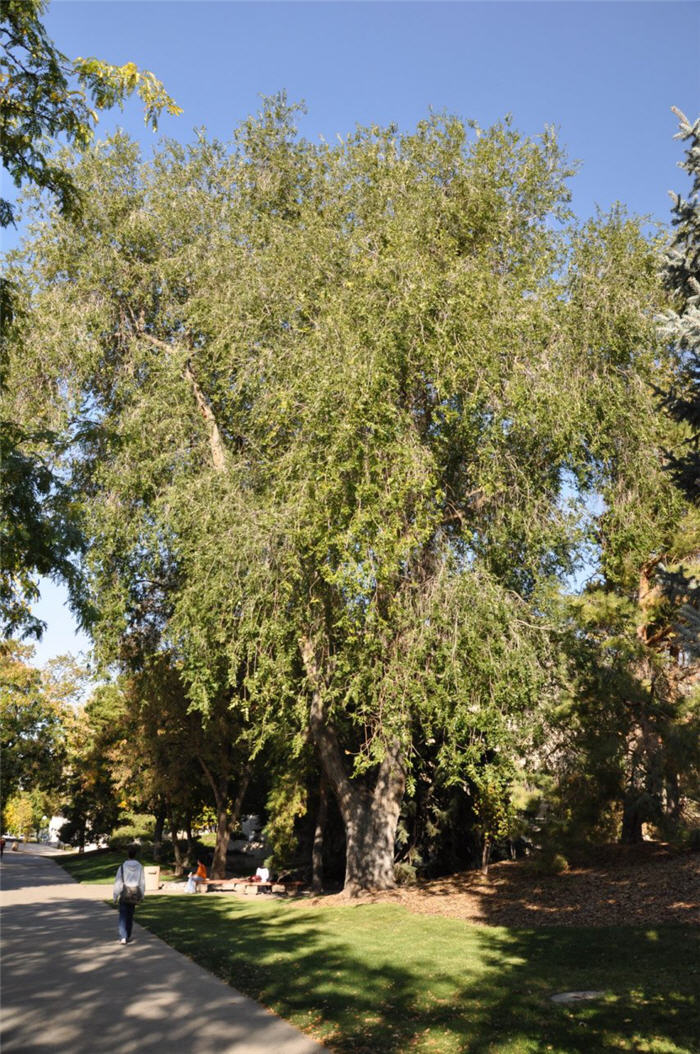| Botanical Name: Populus angustifolia | |
| Common Name: Narrowleaf Cottonwood |

-
Anatomy
-
Culture
-
Design
Plant Type
Tree
Height Range
40-60', 60-100', 100' and up
Flower Color
n/a
Flower Season
n/a
Leaf Color
Light Green
Bark Color
Brown, Grey
Fruit Color
Brown
Fruit Season
Summer, Fall
Sun
Full, Half
Water
Medium, High
Growth Rate
Fast
Soil Type
Sandy, Clay, Loam, Rocky, Unparticular
Soil Condition
Average, Rich, Poor, Well-drained, Moist
Soil pH
Neutral, Basic
Adverse Factors
Invasive
Design Styles
Ranch, Wetlands, Woodland
Accenting Features
Fall Color
Seasonal Interest
Summer, Fall
Location Uses
Background
Special Uses
Erosion Control, Mass Planting, Naturalizing
Attracts Wildlife
Birds, Wildlife
Information by: Stephanie Duer
Photographer:
Photographer:
-
Description
-
Notes
Narrowleaf cottonwood is a fast growing, single stemmed tree with upright branches that form a narrow, though spreading crown. The yellowish green young bark turns grayish brown, rough and somewhat furrowed with age. Leaves are narrow and willow-like, dark green above, and paler below, with finely toothed margins, turning a dull yellow in the fall. Flowers appear in May in the form of catkins, female and male on separate plants. Grows 50 to 65 feet tall and 50 to 60 feet wide. A Utah native. A good choice for riparian corridor areas.
Grow in full sun in moist to wet well-drained soil. Tolerates periodical flooding. Excellent for erosion control near streams, though not ideal near homes, as the aggressively spreading root system will find water lines, septic systems, and drain fields. Narrow-leaved cottonwood provides habitat, cover, and food for a diversity of wildlife including birds, small mammals, deer and moose.